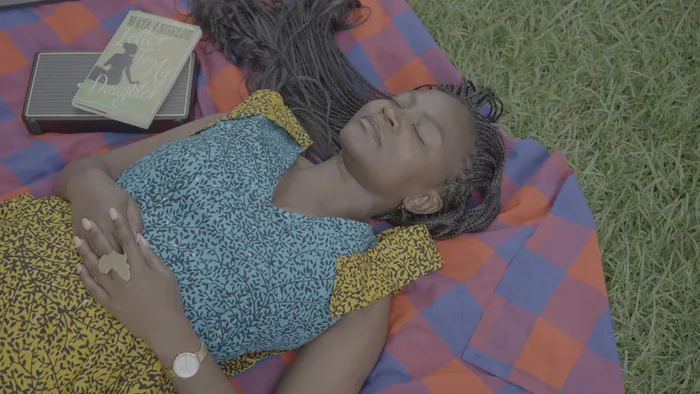5 must-watch films at the upcoming 26th Encounters South African International Documentary Festival

A scene from ‘Black People Don't Get Depressed.’ Picture: Supplied.
The Encounters South African International Documentary Festival is returning with an exciting line-up of local and international films.
The festival runs for 10 days from June 20 - 30, at the The Labia Theatre in Cape Town and The Zone in Rosebank, Johannesburg. It will focus on amplifying diverse voices with insightful perspectives and compelling narratives.
Film-makers Miki Redelinghuys and Pearlie Joubert’s captivating “Mother City” has been selected to open the premier documentary festival.
The hard-hitting film grapples with the rights for access and fairness for people to be able to participate in an urban economy.
Here are five other compelling films to watch at the festival:
“Black People Don't Get Depressed” (South Africa)

Directed by Sara Chitambo-Hatira, this is an engaging documentary about depression, which often goes unacknowledged in indigenous Southern African cultures.
The film-maker goes through the unavoidable journey of facing her depression.
She speaks to others about their mental health as Africans and undergoes practices that mark the ending of her suffering.
The characters in three countries face the same difficulty and harbour a desire to overcome it.
“The Friendship Bench” (South Africa)

Directed by Rea Moeti-Vogt, “The Friendship Bench” is a sensitive documentary that dives into the origin of a grassroots mental health organisation in Zimbabwe of the same name, led by psychiatrist Dixon Chibanda.
In 2006, Chibanda was ordered by the government to deal with the severe mental health crisis afflicting the nation. With not enough psychiatrists in the country, he searched for a solution beyond conventional medicine.
He started with a group of 14 gogos (grannies) and trained them in cognitive therapy to treat depression on public benches.
By creating a narrative tapestry through the stories of the gogos and the lives of their clients, the film explores Chibanda’s visionary initiative of establishing a Friendship Bench within communities everywhere.
His initiative has since expanded throughout Zimbabwe into neighbouring countries and beyond to communities all over the world.
“Catching Fire: The Story of Anita Pallenberg” (US)

Directed by Alexis Bloom and Svetlana Zill, this captivating story will give viewers an intimate and extraordinary look into the life of maverick and legendary actress, model and artist, Anita Pallenberg.
The film is based on an unpublished memoir found after her death and is a portal into a world of a creative force well ahead of her time.
It features interviews with Marlon Richards, who also produced the film, his sister Angela Richards, their father Keith Richards and supermodel Kate Moss.
“Playing the Changes - Tracking Darius Brubeck” (Netherlands/Poland/South Africa/UK)

Directed by Michiel Ten Kleij the documentary is a soulful lick of history, backed by the soundtrack of Darius Brubeck’s father Dave Brubeck’s nostalgic classics, making for a vibrant testament to the unifying potency of music.
“Ballaké Sissoko, Kora Tales” (France/Mali/Senegal)

The story of the kora, one of Africa's most iconic and virtuosic instruments, comes to life in this film.
Ballaké Sissoko, the award-winning musician from Mali, takes viewers on a unique journey in search of the origins and the development of the 21-string harp, through legend, history, tradition and innovation.
Driven by the resonant rhythms, this enchanting documentary is based on nearly half a century of research by co-director Lucy Durán.
For more information and ticket sales visit their website.